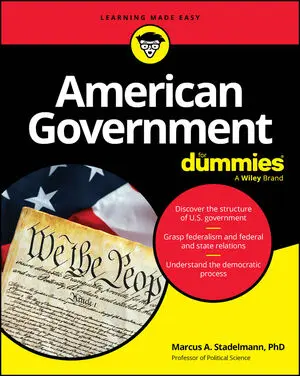Like handlers, pollsters may work for a variety of candidates running in many different states for many different offices, but they generally stay on one side or the other of the political fence — Republican or Democrat.
Who gets polled?
Scientifically conducted polls randomly select the voters interviewed. Randomness is the factor that permits a few hundred people to speak for all the voters within a statistical margin of error. In other words, you are as likely as any other voter in the district to be asked to participate in the poll. No sample is perfectly random, but pollsters try to make their survey as close to random as possible because that's the way the sample is most reliable.Methods to their madness
Random digit dialing is one technique used to ensure a sample's accuracy. In random digit dialing, telephone numbers are randomly connected to each working telephone exchange. This method is especially accurate and has the benefit of reaching voters with unlisted numbers, but it's expensive because the pollsters charge for the numbers they dial that aren't working or aren't the numbers of registered voters.If the area being polled doesn't have clear exchange boundaries, like a city where different legislative districts represent people in the same exchange, random digit dialing may not be cost effective. That's because there is no way to separate out the phone numbers of people in the district of interest to the poller. If the poll is for a primary race with low turnout, random digit dialing may not be cost effective either because the pollster will reach so many people who don't plan to vote in the primary.
When random digit dialing doesn't work, pollsters use voter file lists that have been phone matched. This method may not be as accurate as random digit dialing because some groups of voters don't have phones in proportion to the number of people in the group who vote. Older voters, mobile voters, rich voters, and young voters tend to be undersampled when this method is used.
No method of selecting the voters to be polled is perfect, but pollsters try very hard to make the sample as representative as possible. After all, the candidate makes important decisions based upon the answers you give.
 © Shutterstock/megaflopp
© Shutterstock/megafloppFitting a certain profile
If you get called for a poll, it's probably because your number came up at random. On the other hand, you may have been selected because you fit a certain profile. You may still have been selected at random, but from a small subgroup of the voting population.For example, suppose that Harry Handler thinks a position taken by the opponent will anger women under the age of 50. Harry may believe that publicizing this position will lose the opponent votes among that age and gender group. He wants to test that theory before spending any resources getting the word out to voters. It's not worth spending the money if the opponent won't lose votes.
Your name may have been selected from among those who fit the profile of the interested subgroup — women under 50. The answers you give to the pollster's questions tell the handler whether or not to spend money getting the word out to other voters like you.
If you get that call . . .
Only a few hundred people are asked their opinions on these questions. Those few hundred people have a significant impact on the message and strategy for the campaign. Their answers help decide which programs a candidate supports or opposes during the campaign. They tell a candidate whether her message is getting through or needs to be refined.No campaign will spend money finding out what you think if you are not a registered voter. If you want an opportunity to shape political campaigns, make sure that you're registered to vote when that pollster calls you.
If you are polled and take the time to respond, you can shape the approach and content of a campaign. You are one of only a few hundred people in your congressional district or state who get to speak about a broad range of issues while the candidate listens. You are in a position of influence. The candidate wants to know what you think. The candidate is paying the pollster good money, and lots of it, just to hear your views. You are a political pooh-bah. And all you did was register to vote and answer your phone! Of course, you also missed Jeopardy! — but now real folks, not just the television set, have had the benefit of your wise answers to questions.
Who polls?
Any campaign with sufficient money uses polls these days. The level of the office being sought doesn't matter — county and legislative candidates use polls, too. Polling is advisable whenever an office involves policy or a campaign is going to be anything more than "I'm Carly Candidate; vote for me!" A well-run, well-funded candidate tests his message before he spends money communicating it.Sometimes candidates for less visible offices pool their resources and poll together. Sometimes party organizations pay some or all of the costs. Occasionally, special interest groups use polling to convince candidates or officials of the wisdom of supporting the special interest position on an issue. Special interest groups use polls to show candidates that their ideas are popular or that an issue they are opposing is unpopular.






